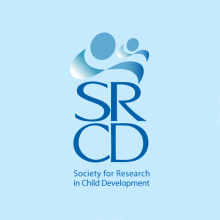August 2013 Spotlight on the SRCD Policy Fellow: Kathleen McCoy, Ph.D.
2012-2013 Federal Executive Branch Policy Fellow
Being from the DC area, there was always a part of me that thought I would work for the government. Even when I moved away from DC for graduate school, I still was intrigued by working for the government. Thus, during my first year of graduate school, I attended an informational session at SRCD that talked about the interface of child development and public policy. I knew I wanted to be a part of that! But to be honest, I didn’t really know what public policy meant or what you could do in the federal government as a clinical psychologist with a developmental background. Thankfully, I am currently a SRCD Executive Branch Fellow this year, which allows me to get answers to many of my questions.
I currently work in the Office for Planning, Research and Evaluation (OPRE), which is housed within the Administration for Children and Families. OPRE has three main divisions; my work cuts across two of them – the Division of Child and Family Development (DCFD) and the Division of Family Strengthening (DFS). This brings great variety to my day to day tasks, as well as the types of research questions that I work on. For example, DCFD focuses primarily on early childhood related issues, such as Head Start, while DFS focuses on issues that cut across the life span, such as teen pregnancy prevention and healthy marriage-responsible fatherhood. Having a diverse research portfolio allows for no two days to be the same, which I love!
As I reflect back on things that I learned over the course of this year, implementation science immediately comes to mind. During graduate school, I worked on several interventions, but I never really thought about the implementation of the program. Yet, when I came to OPRE, implementation science was all a buzz! Many of the evaluations I work on have an implementation evaluation, in order to help us understand numerous critical program components, such as program reach, attendance, and dosage. Additionally, the implementation evaluations allow researchers to understand factors related to the quality of programming and maintaining fidelity.
Program adaptation is another large piece of implementation science. Recently, I attended meetings sponsored by the Office of Adolescent Health, and another sponsored by the Center for Disease Control, to hear from experts in the field discussing program adaptations. Each of these experiences has deepened my understanding of how complex and important implementation science is. Program dissemination is another area I am discovering, as it was not a part of my graduate school training. I thought you disseminated your findings by publishing a scientific article. Yet, I’m learning that publishing a scientific article only reaches a small number of individuals, leaving many people in the dark about great research being conducted. I am learning how to disseminate findings to practitioners, legislators, key leaders within ACF, state administrators, and the general public. This requires not only tailoring the language of the report for different audiences, but also changing the format by which you give others information. For example, the full length report may be of interest to researchers, while others may want just the take home message from the report. It requires a lot of creativity, which is enjoyable and challenging.
Being an Executive Branch Fellow truly has been a privilege. I have learned a great deal about public policy, legislation, and research. In truth, I could go on for days about all this fellowship has taught me. This experience made me step outside of my comfort zone of marital conflict research (which I studied in graduate school) and study a whole host of other topics – which I love! I am looking forward to my second year, where I can continue to grow in the areas mentioned above, as well as in other areas that I have yet to be exposed to.
